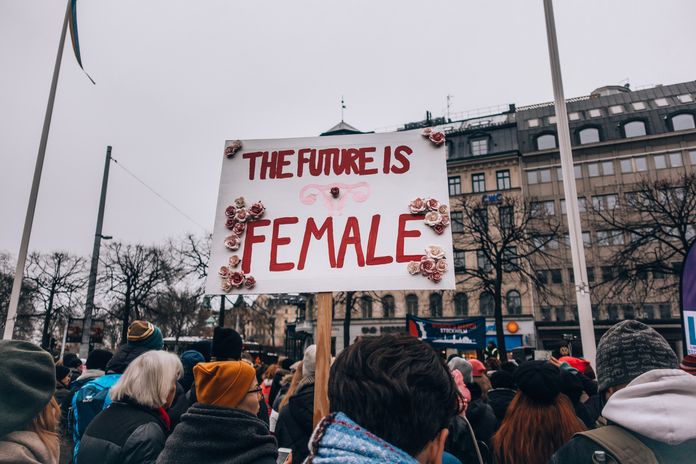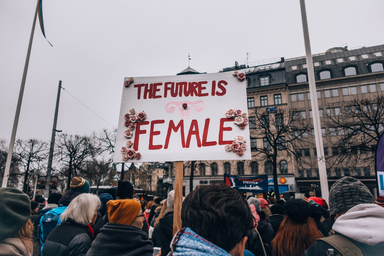It is a well-known fact that the world is a fairly sexist and misogynistic place, however most of the things we discuss and most of the feminist movements we see are from a western point of view. Eastern feminist movements are rarely recognized and highlighted by the media, being all too focused on other manifestations like #MeeToo, not to say they are not valid and necessary, just that they don’t always apply to every societal structure.
With all this said, a new feminist movement has recently entered the mainstream, mostly because of its rather radical ideas, which are now the topic of many TikTok videos. We are talking about the 4B, a South Korean feminist uprising in which its values are centered in not having any kind of relationship with men. But before we talk about the movement itself, a bit of context regarding the country’s view on feminism and women’s rights is needed. In Korea, feminism is sort of taboo; most women avoid saying that they are feminists as a way to protect themselves from societal backlash or, in worse cases, physical attacks, sometimes for vague things like having short hair.
Now, you may ask, “Why does having short hair immediately equals feminism?”, and the answer is beauty standards and, you guessed it! The patriarchy. Let me explain it better while getting into deeper meanings about the 4B movement, since these two concepts are more intertwined than you may think.
4B Movement: putting the pieces together
For starters, beauty standards are easily one of the most efficient tools that the patriarchy uses to manipulate women, and in Korea it is no different. Just look at the K-pop industry and how they treat their girl groups, having them do crazy diets to stay bone thin and photoshopping most images so that they are as pale as possible and with little to no flaws. Because of all this pressure, women in 4B have been rejecting these stereotypes as a way to go against the patriarchy and its manipulation, cutting their hair shorter and not using any makeup. But that’s just the tip of the iceberg in 4B. This political manifestation has 4 pillars, expressions in Korean that all start with “B”, hence the name: Bisekseu, Bichulsan, Biyeonae, and Bihon.
4B is also mainly discussed online, so that the women involved can stay anonymous and avoid suffering the previously stated consequences of being labeled “feminists”. For that reason, and as well as being a fairly new movement, it still has some inner disagreements, such as if friendship with men is still allowed or if trans women are also allowed to participate, but despite all of that, it is still a powerful way of challenging the patriarchy’s power.
Furthermore, the K-Drama industry and its influence in the world have given the impression that Korean men are these knights in shining armor, telenovela sweethearts, which, not to generalize, most of the time is not true. The problem with romanticizing men based solely on what is seen in movies is that we blind ourselves to reality, and that is, Korean men do not support feminism, but in reality they have very conservative views about marriage and women’s rights. According to OECD, the gender wage gap in Korea hits the mark of 31.2%, highest among all “rich countries”, and that’s just an example of how hard it is to be financially stable as a single woman in Korea. An article made on this same topic by The Cut states that most young Korean men are aligning themselves with anti-feminist and misogynist communities called “Ilbe”, saying that “women are demanding additional rights and privileges when they already benefit from avoiding the country’s compulsory military service”.
In hindsight, the 4B movement is trying, by radical means, to change the way Korean society is wired, fighting its highly sexist standards about women’s appearances and behaviors, all while advocating for political representation and equity between genders.
—–
The article below was edited by Fernanda de Andrade Silva.
Liked this type of content? Check out Her Campus Cásper Líbero for more!


